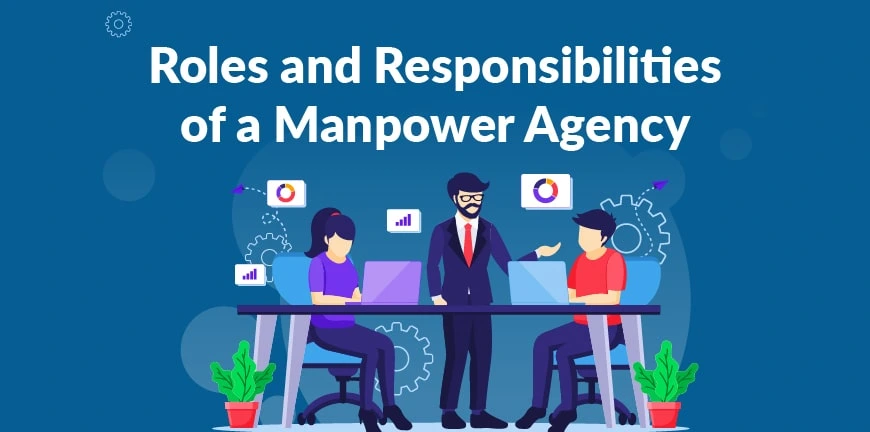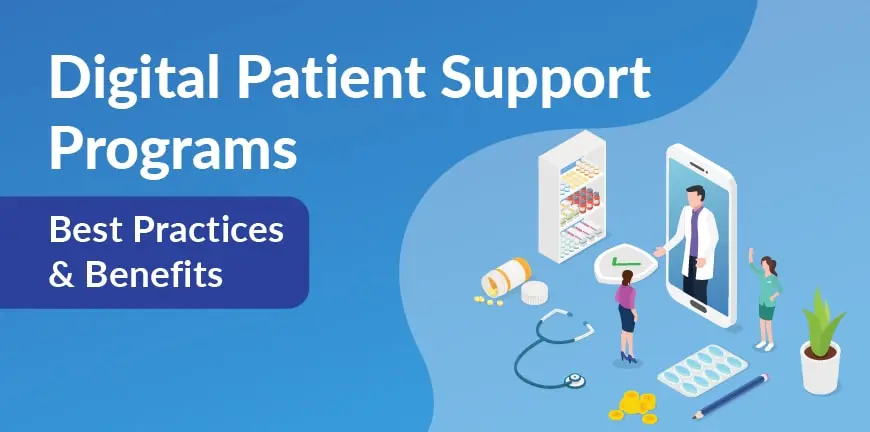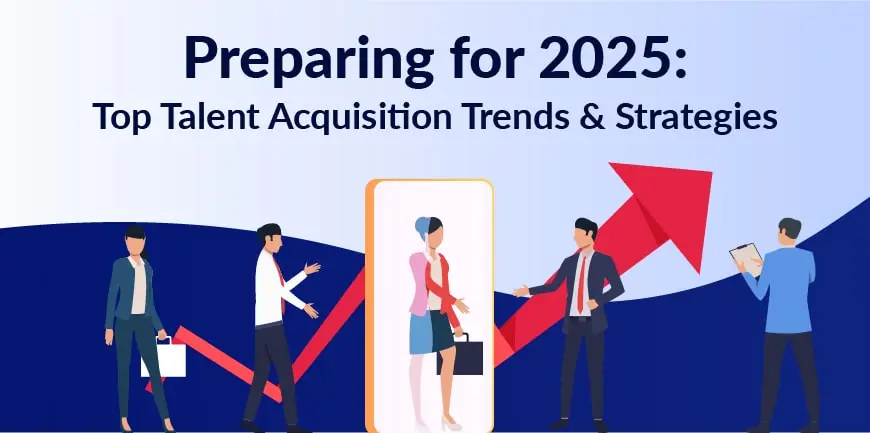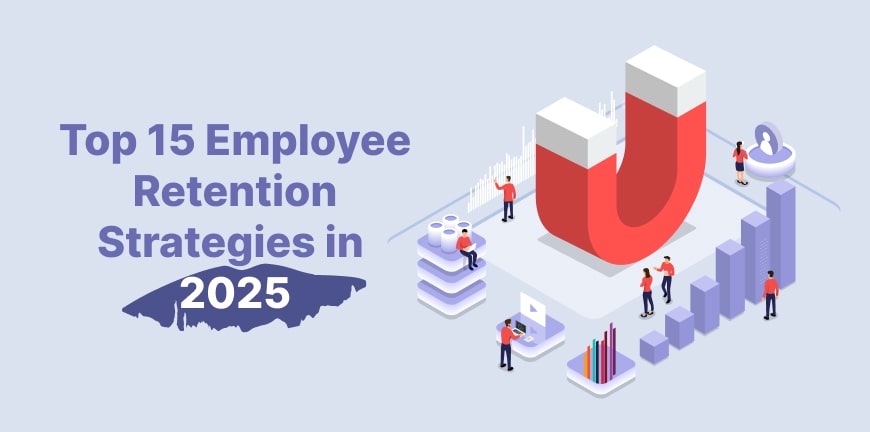
What Are the Roles and Responsibilities of a Manpower Agency?
18/10/2024
What are the Benefits of Digital Patient Support Programs?
22/10/2024There has been a change in talent acquisition trends ever since the pandemic. 2021 was the year of great resignation, 2022 bought a new wave of diversity and inclusion initiatives and 2023 saw the dominant wave of AI.
Coming to 2025, identifying and understanding the latest talent acquisition industry trends is imperative in order to give your organization a serious edge in attracting and retaining talent.
However, it isn’t possible for one individual to map out what the future holds. Insights extracted from blending the views of global talent leaders with comprehensive data is what can help fuel annual talent acquisition trends.
Top 10 Talent Acquisition Trends for 2025
Some of the recent trends in talent acquisition that you must know about are-
1. AI and Automation in requirement
AI generated content has widely been used by both candidates and recruiters.
Recruiters are-
- using AI to generate ad content and job descriptions to post on job boards in the blink of an eye.
- Integrate bias checkers to make sure that the language they are using in descriptions and ads are gender neutral.
- Use screening tools to enhance the process of sourcing, screening and selecting candidates.
- Automate routine tasks like scheduling interviews, following up on candidates and generating offer letters improving recruitment.
2. Hiring based on skills, not over degrees
Gone are the days when degrees were given more importance than skills. The technological advancement and the drastic digitalization today have enabled candidates to learn and acquire relevant skills and knowledge regardless of the degree they have. Resume Genius data reveals that 65% of managers would consider candidates with relevant skills even if they lack relevant work experience. Some of the relevant skills include
- Soft skills
- Analytical thinking skills
- Customer service
- Project management
- Writing and editing
- Sustainability, business development and data analysis
- AI mastery
And these skills are exactly what employers desire, which is why there is an emphasis on skills, certifications over degrees.
3. Flexibility in the mode of work
Companies offering flexible modes of work are becoming more and more desirable for candidates. This also enables employers to tap into the global market, acquire diverse candidates from across the country, with no geographic barriers, increasing their chances of attracting the best talent.
4. Focus on employer branding and employee value proposition
The first thing a potential candidate notices is a company’s online presence. A strong employer brand reflects a company’s culture, mission and values, and this is vital for attracting top talent, especially in today’s time where the job market is competitive, and most companies are really upping their branding game. Potential candidates look for organizations that show commitment towards its employees, offer benefits like a good work-life balance, career growth opportunities and are forward about taking CSR initiatives.
5. Diversity, Equity and Inclusion (DEI)
DEI initiatives have always been a priority for employers and remains an essential part of recruitment strategies. But to implement DEI the right way is the actual challenge, which is why companies are implementing structured processes that helps eliminate unconscious bias and ensure effective diverse and inclusive hiring. Another useful trick to successfully implement DEI is the use of inclusive language in job descriptions and recruitment campaigns. This can help attract a much wider pool of candidates.
6. Mobilising of internal talent and upskilling as required
One of the most important talent acquisition trends in 2025 is internal mobility. Finding talent is a tedious, long process. Not to mention, is extremely challenging given the competitive job market. Mobilising internal talent, in times like these could be advantageous for companies. Promoting talent from within not only helps with better productivity, but also provides career advancement opportunities for employees, and that’s desirable.
Additionally, upskilling programs can help employees acquire new skills, keeping them relevant and also reduces the need to hire from outside the organization.
7. Enhanced Candidate experience
It’s a candidate’s world out there. One of the very first experiences that a candidate has with your organization is the recruitment process. Making the recruitment process seamless, easy and engaging is extremely important. With open communication lines, feedback mechanisms and a smooth interview process is some of the ways you that your company’s reputation can be enhanced.
8. Sustainable work practices and emphasis on green hiring
Sustainability is at the forefront of all business operations. The growing importance of sustainability is evident, and today’s generation seemed to be taking it quite seriously as well. So, when organizations demonstrate a commitment towards environmental and social governance (ESG), it poses as an attractive quality for potential candidates. Sustainability initiatives are becoming a critical part of employer branding.
9. Shift to freelancers and contractors, and the importance of gig economy
Leveraging gig economy and hiring more and more freelancers has very much helped companies remain competitive, agile as well as reduce overhead costs that occur from hiring full-time employees. Also, most candidates in tech and creative industries prefer working as freelancers or on short-term contracts as it allows them flexibility to work on their own terms and times.
10. Extensive use of Data analytics in Recruitment
Data is the main driver of all important decisions. Recruiters, with the help of advanced analytics can easily identify hiring patterns, predict trends and make data-driven decisions about sourcing, engagement and candidate evaluation.
Predictive analytics help organizations forecast hiring needs and evaluate the potential success of candidates based on past performance metrics.
Employers are increasingly adopting AI-driven recruitment tools, data analytics, and automated workflows to streamline hiring processes and enhance candidate experiences. The focus on skills-based hiring is gaining momentum, prioritizing a candidate’s abilities over traditional credentials. Hybrid and remote work models continue to be central, requiring adaptable recruitment strategies. Additionally, diversity, equity, and inclusion (DEI) remain top priorities, with companies seeking diverse talent to foster innovation and meet the evolving expectations of the modern workforce. These trends are transforming how organizations attract, engage, and retain top talent in a competitive market.
Contact Us For Business Enquiry

Rajkumar Shanmugam
Rajkumar Shanmugam is the Head of HR at ALP Consulting, bringing over 19 years of comprehensive HR leadership experience across India and international markets. His expertise spans talent acquisition, employee relations, performance management, compliance, and HR transformation. Rajkumar has a proven track record of driving people-centric initiatives, enhancing workplace culture, and aligning HR strategy with business goals. With extensive experience in US staffing operations and global mobility, he continues to lead organizational excellence through innovation and employee engagement.




